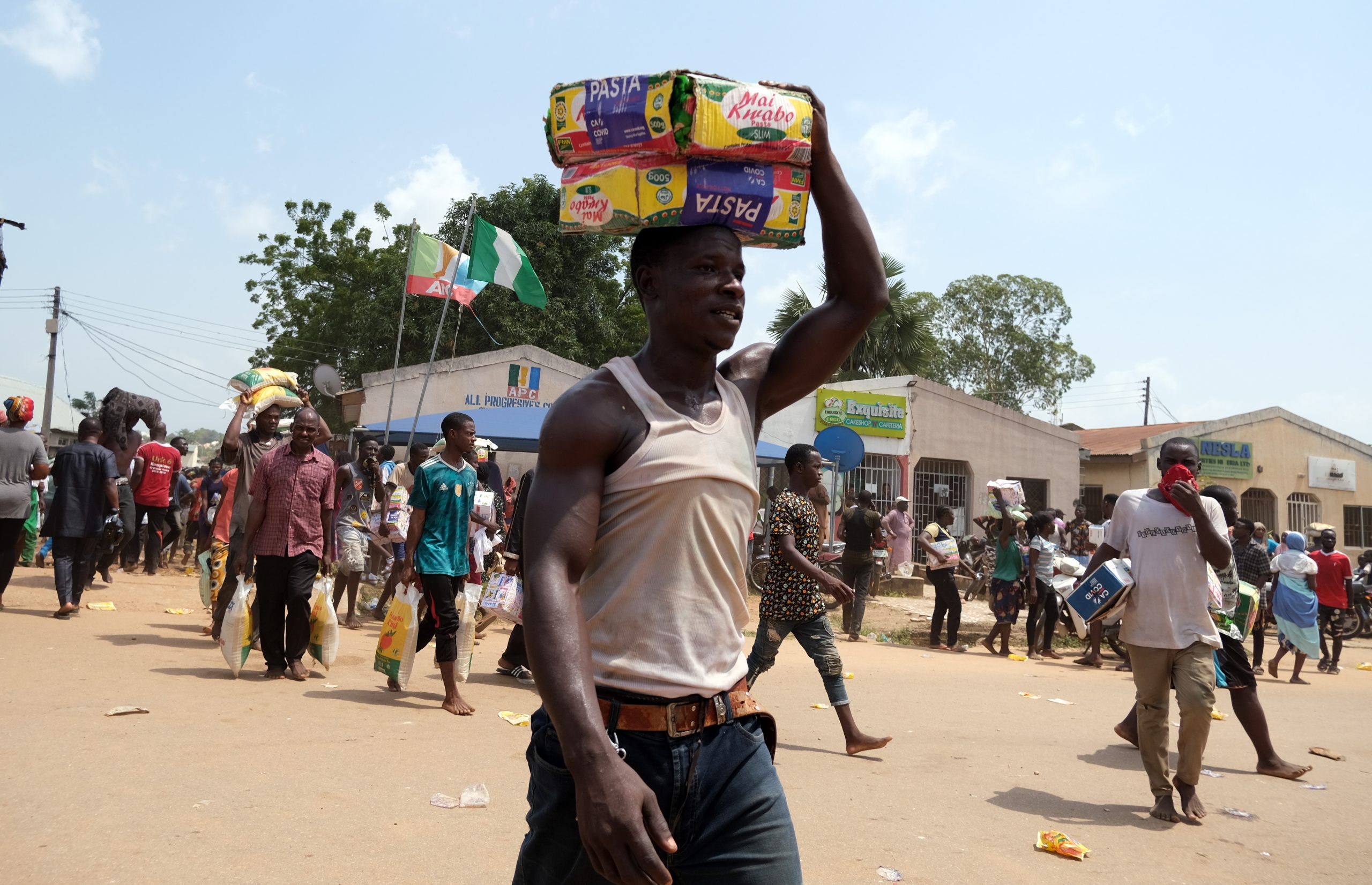
The stampedes that characterised the distribution of free food in Abuja in the Federal Capital Territory, Ibadan in Oyo State and Okija in Anambra State leading to the death of many people were avoidable if the events were properly handled and the prospective beneficiaries had conducted themselves in an orderly manner. It is unfortunate that the philanthropic event turned into tragedies that claimed the lives of many people, including children, that they were organised to assist.
We condole with the families that lost their loved ones in the incidents and pray that God should give them the fortitude to bear the loss.
From the media reports on the incidents that occurred within three days at three different locations, it was reasonable to say that the organisers meant well, trying to reduce the burden of feeding on their fellow citizens during the Yuletide season. It was learnt that some of them have been organising such events for years and many people have been benefitting from the gestures without falling casualties. The stampedes were a fall out of the culture of desperation, impatience, and poor sense of organisation that have been in the character of some Nigerians for a long time. Besides, the handling of the events by the organisers was poor.
It was gathered that the Ibadan event organised majorly by the Women In Need of Guidance and Support Foundation was planned to host 5000 children, who would be given N5,000 cash and other gifts each. But about 7000 people turned up for the party. According to reports, the stampede ensued when the overflowing crowd of children and their guardians in attendance impatiently surged forward to collect the money and the gifts immediately the organisers arrived at the venue and started distributing. Tragically, in the resulting stampede, about 35 people, mostly children, were crushed to death. It is in the news that following the tragedy, some people have been arrested.
The tragedy in Okija, Anambra State occurred in a similar manner. It was not the first time such event would be organised for the community by a philanthropist, Obi Jackson, the chief executive officer of Nestoil. When the crowd rushed forward to collect free rice being distributed, more than 20 people were reportedly crushed to death. The Abuja incident also occurred when the huge crowd that gathered to collect free rice at the Holy Trinity Catholic Church in the Maitama District became desperate and tried to force entry into the premises to collect the food item. Sadly, 10 people lost their lives in the ensuing stampede.
The tragedies in Abuja, Ibadan and Okija are manifestations of certain things about Nigeria, its citizens and life in the country. Many of the citizens are not lovers of orderliness that is imperative in realising the objectives of participating in programmes such as distribution of free food. This attitude that portrays people as not disciplined has been with many of us for a long time. Perhaps it was part of the reason the Gen. Muhammadu Buhari/Brig-Gen Tunde Idiagbon military regime launched the popular War Against Indiscipline (WAI) scheme, which made enforcement of queuing a major component of its operations. Before then, disorderliness was the case in many public and private places where many people were competing for attention from the same set of service providers. At such places, including banks, desperate people would want to be attended to even before those who arrived for such attention before them. They put pressure on officials attending to people and disrupt provision of services to the detriment of many other people. The culture of queuing was alien. For the period that the military regime was in the saddle in the country, discipline and orderliness by way of queuing was strictly enforced in many places, even without the presence of military personnel. In a sane society where people are not too impervious to correction, the culture of queuing should have been fully established in every individual such that at every place where there is need to be orderly in our conduct, Nigerians would exhibit it without being forced to do so. Partly because regimes succeeding the Buhari/Idiagbon administration did not prioritise the queue culture, there was a relapse, and now the country seems to have been back to the unpleasant experience of the old days with the tragic stampedes. Nigerians must do something about it.
It is also crucial to state that apart from the culture of disorderliness, at the centre of the desperation of those who went for free food and other gifts at the distribution centres was high level of hunger in the land caused by government’s economic policy, particularly the removal of fuel subsidy in 2023. Ever since, the cost of living has become extremely high, thus sending thousands of Nigerians into extreme poverty, among other challenges.
The recent announcement by the National Bureau of Statistics (NBS) that the headline inflation in the country had increased to 34.6 per cent is creating fear of worsening economic situation. Though there was a mild relief in August and September 2024 when the inflation marginally declined, but the depletion in the purchasing power of the naira thereafter has wiped it away, pushing more Nigerians below the poverty line. With food inflation getting close to 40 per cent, millions of Nigerians can no longer afford basic foodstuffs.
The best and expected way to respond to the situation is for the government to take practical steps to tackle the food inflation in the country. The government should invest adequately in food production at federal and state levels, and encourage private sector operators to do the same. To avoid stampede during future food distribution events, the organisers should involve security personnel and professional event planners, and as soon as there is any indication of the exercise turning rowdy, it should be stopped and the crowd dispersed. Nigerians must imbibe the habit of orderly conduct at such events.






